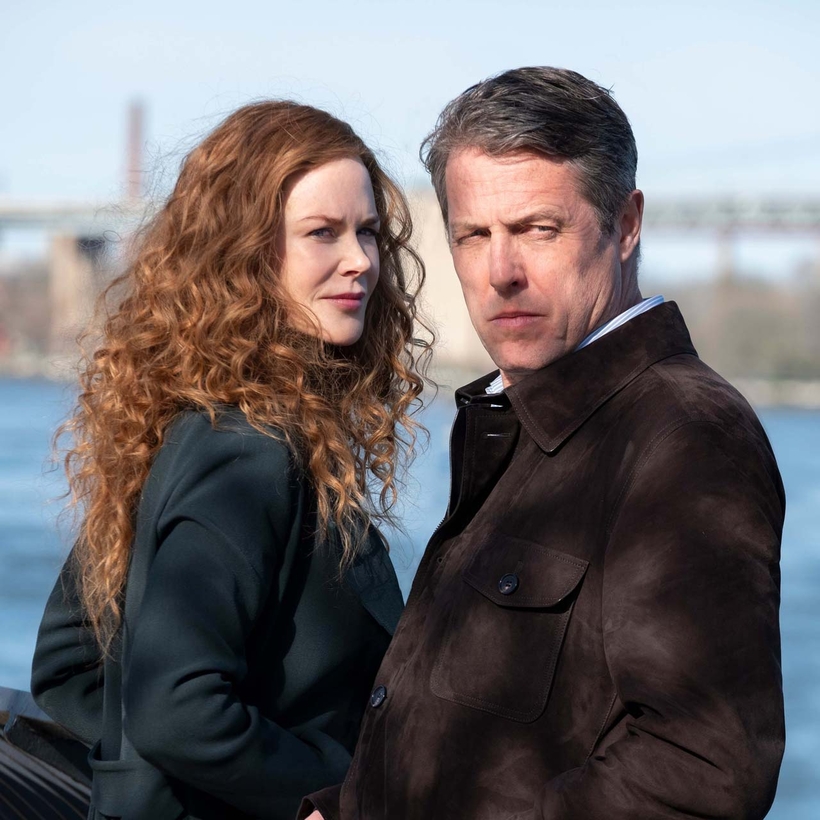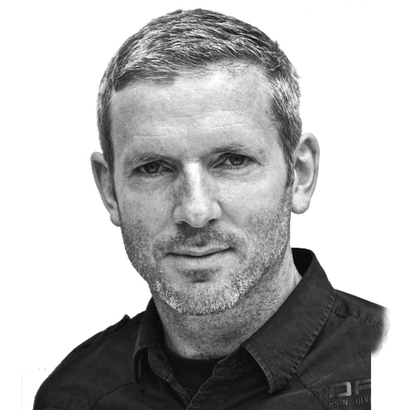What a difference six years make. When I last spoke to the Danish film director Susanne Bier, in 2014, she was somewhat shellshocked. Her new Bradley Cooper and Jennifer Lawrence movie, Serena, had been effectively taken out of her hands and turned into mush by the money men. It had been a bruising encounter with A-list Hollywood, during which time she had been bossed about and patronized, primarily it seems because she was, well, a woman.
Since then, however, she has directed the multiple award-winning mini-series and possibly best John le Carré adaptation, The Night Manager. She has made the smash hit Netflix apocalyptic thriller Bird Box. And she has recently completed a ridiculously gripping six-part psychological thriller for HBO called The Undoing, starring Nicole Kidman and Hugh Grant as wealthy New York elitists brought down by infidelity, deception and one seriously savage murder.
“When we spoke the last time it was just after Serena,” the 60-year-old film-maker says from her home in Copenhagen. “And I did experience on that waves of men talking to me in a way that they would never talk to another man. But since then I’ve gotten to a point where it’s easier to fight back because I’m coming from a place of success and happiness, and am much less likely to let any attack really hit me. I am much less vulnerable than I was at that time.”
It doesn’t get more successful than directing a prestigious big-budget, star-driven series for HBO, the home of Game of Thrones, Westworld and Big Little Lies. The connections with Big Little Lies are palpable, since both series are set in upper-crust milieus, especially posh private schools, feature a central murder, star Kidman and are written by David E Kelley.
“Of course those elements are incredibly forceful,” Bier says. “But I do think that the shows are quite different. I love Big Little Lies, but this one, for sure, is much more of a clear-cut thriller.”

The Undoing’s thriller credentials are conspicuous from the start, and ingeniously delivered by Bier. It opens with a murder, then flashes immediately back to some careful world-building, introducing characters in conflict in the seemingly perfect social circle of ace psychologist and attentive mother Grace Fraser (Kidman) and her adorable, witty and deeply compassionate oncologist husband, Jonathan (Grant, rarely better).
Grace’s Upper East Side existence is nudged slightly off-kilter by the arrival at the school gates of a quirky yet mysterious yummy mummy called Elena (Matilda De Angelis), who seems openly intent on seducing our heroine with long lingering looks and brazen displays of nudity.
Within a couple of scenes, though, someone gets bludgeoned to death with a hammer, marriages fall apart, fingers of suspicion are pointed and suddenly, eerily, everyone involved seems guilty — or at least capable — of homicide.
Grant, it transpires, is especially good at ambiguity, and his performance as Jonathan is one of his best yet. He is slippery in the extreme and slides thrillingly between sympathetic and sinister, sometimes within the same line.
Grace’s Upper East Side existence is nudged slightly off-kilter by the arrival at the school gates of a quirky yet mysterious yummy mummy called Elena.
In a moment from episode three, for instance, when suspicions land on Jonathan, he turns to Kidman’s Grace and pleads, choking back the emotion: “You know that I would never take a human life!” And yet he delivers the line with his bottom jaw jutting slightly forward and his teeth flashing with a hint of barely suppressed aggression.
It’s indecently accomplished acting and something that you don’t always expect from Grant, who has, for a long time, often seemed content to toddle about lazily in his “charming toff” wheelhouse. I tell Bier that I love what she has done with the man.
“Here’s the thing,” she replies. “He’s done that himself. He’s a brilliant actor and he was relentless and incredibly diligent on this. The most calls I got from any actor over the weekend were from Hugh. He’d be agonizing about a certain line, or a certain moment, and how to change it. And then I’d get pages of rewrites of brilliant dialogue from him. So even to suggest that his range as an actor is limited is preposterous.”

Elsewhere, there are issues. The dramatic momentum of the series, for instance, is built on the vicious (seen in shockingly subliminal flashes of gore) slaughter of a woman. Aren’t we supposed, as a more enlightened screen culture, to be, you know, not doing that any more?
“Well, violence against women happens,” Bier says. “We also need to address it, in terms of drama, because it’s real. That doesn’t mean that we’re endorsing it. Quite the contrary. We’re not justifying violence against anyone.”
Bier wears her feminism lightly these days. In the past there was a tendency for every interview (including mine) to become a platform for her to express her outrage at the lowly place of women in the film industry. Yet her recent track record of unqualified wins has elevated her into that rarefied commercial space where gender is irrelevant and her status as a hit director (rather than a “female director”) is all that matters.
“Yes, I feel that,” she says. “I feel that for me personally. But I also feel that, for women starting out, the very thought of having kids while also being a director is very challenging. I was lucky to come from a country that’s very equal, which has enabled me, with very little effort, to do what I do. But that was a huge privilege, coming from a society like that.”
“The most calls I got from any actor over the weekend were from Hugh [Grant]. He’d be agonizing about a certain line, or a certain moment, and how to change it.”
Bier grew up with two brothers in a middle-class Copenhagen home, children of Jewish parents who had fled from Nazi persecution in the 1930s. She has said that her home life was harmonious yet “eerie” because of her parents’ refusal to talk about the war years and the atrocities committed.
She briefly studied architecture in Jerusalem before defecting to film-making at the National Film School of Denmark, yet this foreboding sense of what she describes as “potential catastrophe” never left her.
She quickly became a celebrated director in Denmark, making the car-crash melodrama Open Hearts, the Afghan war story Brothers (later remade with Jake Gyllenhaal and Tobey Maguire) and the refugee drama In a Better World (for which she won a best foreign-language film Oscar). Hollywood beckoned, first with the middling Things We Lost in the Fire, then the execrable Serena.
Married twice and with two children (now grown-up), she was a self-declared and dedicated news junkie, perpetually scouring broadsheets and websites for hints of some vague impending Armageddon.
It made her, clearly, the perfect choice to direct the Sandra Bullock apocalypse movie Bird Box, but recently, with the arrival of the coronavirus pandemic, she has felt oddly clairvoyant. “That sense of catastrophe hasn’t gone away from me,” Bier says. “Now I’m just sharing it with the rest of the world. The pandemic has contaminated everyone else, and we’re all now hyperaware of potential catastrophe.

“When we spoke last time the whole world didn’t think as I did, but now, unfortunately, we share the same sentiments. It doesn’t make it any better. Before I felt like I was just crazy on my own, but now I turn around and ask, ‘Are we all crazy?’ ”
She adds, nonetheless, that she’s inherently an optimist and found much to appreciate during her Danish lockdown with her composer husband, Jesper Winge Leisner. “I had been basically away from home working for four years,” she says. “So I think for my partner and me it was quite good to be locked in together and not be able to travel.”
Editing The Undoing from home was challenging during the same period and involved endless transatlantic Facetime sessions and the recording of a soundtrack score in Australia (the only place where orchestras could perform earlier in the year).
She says that, although she had no idea about what project she’ll tackle next, she has been spoilt by the expansive luxury of mini-series storytelling and admits that she’ll find it hard to return to movies. “I probably will go back to the two-hour movie format, but it feels like going back to a short story rather than a novel.” She doesn’t reveal the budget of The Undoing other than to say, repeatedly: “Yes, it’s a very expensive show.”
HBO is notoriously reluctant to release financial figures, but the first season of Westworld is alleged to have cost $100 million, while Big Little Lies was rumored to cost $10 million an episode. Bier admits that it’s “costly” work, but that it’s about creating a cinematic experience on the small screen. “There really isn’t any big difference between TV and film any more,” she says. “The big difference, in fact, is that this is a six-hour film, as opposed to a two-hour film.”
She ends with some reflections on her position as a heavyweight film-maker and the first woman director to win an Oscar, a Golden Globe and an Emmy (for The Night Manager). Has it changed her as a director? Is she, when on set, for instance, cock of the walk?
She says that she’s firm with actors, but always honest. “It’s not always pleasant, but it makes me trustworthy. I will say, ‘That was really boring!’ But if it’s done with a certain amount of warmth and with the purpose of getting the best result, I think it works.” But, equally, she adds: “I’m not about shouting, or about the trappings of command on set. I don’t waiver. I might make a mistake, but I’m pretty consistent and confident about what I do. Which is a nice place to be.”
The Undoing premieres tomorrow on HBO at nine p.m.
Kevin Maher is an Irish journalist and writer. His most recent novel is The Last Night on Earth


